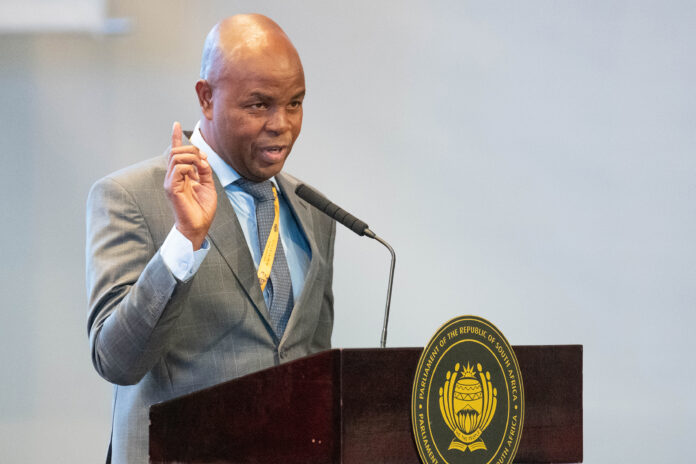A war is brewing between two arms of the state, as the Mpumalanga provincial government challenges parliament to produce evidence after explosive claims that its education department paid R6.5-million to ghost workers.
In a statement released on Wednesday night, Premier Mandla Ndlovu described the allegations as a smear campaign aimed at derailing his administration’s commitment to ethical governance.
“We have noted the allegations which suggest the existence of ‘ghost workers’ in the department of education,” said acting provincial government spokesperson Zibonele Mncwango.
“The allegations have been circulated on various media platforms, including social media. It is further alleged that an amount of R6.5-million has been spent to pay the salaries of the purported ghost workers.”
Payroll audit conducted
But the provincial government is denying the allegations.
“The provincial government is deeply concerned about these allegations, more so because they are not new,” Mncwango said.
“The government refutes them unequivocally and views them as a distraction in the efforts of the seventh administration to entrench ethical principles.”
He explained that when the same allegations surfaced in October 2024, the education department responded by pointing out that “there was no material evidence either in the annual report or in the auditor-general’s report to substantiate the claims of ghost employees.”
Mncwango added that a payroll audit conducted by the provincial treasury in February 2023 confirmed there were “no instances of ghost workers on the payroll”.
He conceded that, like in any institution, anomalies may occasionally occur — but these are explainable and not proof of systemic corruption.
“The government wishes to put it on record that isolated cases may arise in any institution where an employee passes away shortly after a salary run has been processed. These are referred to, in administrative terms, as ‘late terminations’.”
He said the department, which is under MEC Cathy Dlamini, has already implemented “a proactive advocacy and an administrative programme to reduce these late terminations” and continues to “strengthen the payroll integrity”.
Taking the matter to parliament
Mncwango further confirmed that the province would be taking the matter directly to parliament.
“To ensure that the record is corrected and constructive engagement continues, the department has resolved to write formally to the portfolio committee on education, where the allegations emanated from, to clarify this matter and seek further guidance,” he said.
The provincial government’s defensive stance follows searing accusations by the chairperson of parliament’s portfolio committee on public service and administration, Jan de Villiers, who has labelled the ghost worker phenomenon as “organised crime within the state”.
“This is not an error. This is organised crime within the state,” De Villiers said last week.
“At least three people need to collude to put a ghost on the payroll. Every person drawing a salary must be verified in person. These are syndicates.”
De Villiers cited the Mpumalanga education department’s R6.5-million figure as one of several shocking examples uncovered by the auditor-general, adding that a national payroll clean-up is urgently required.



